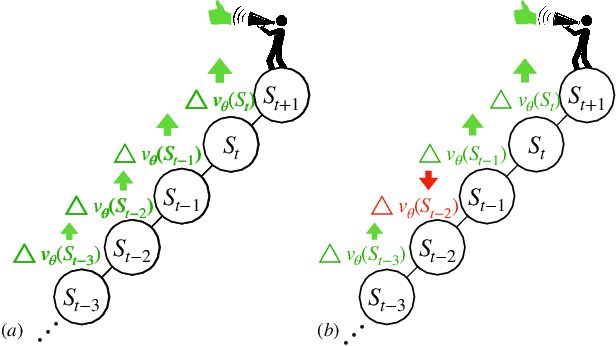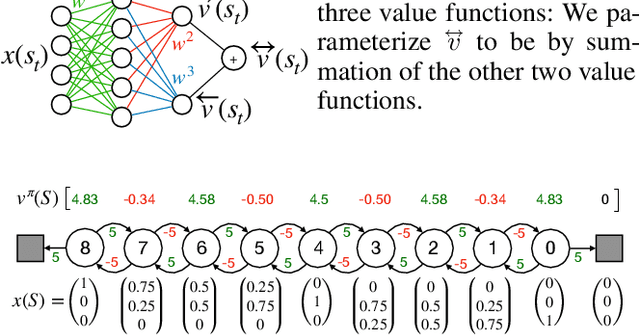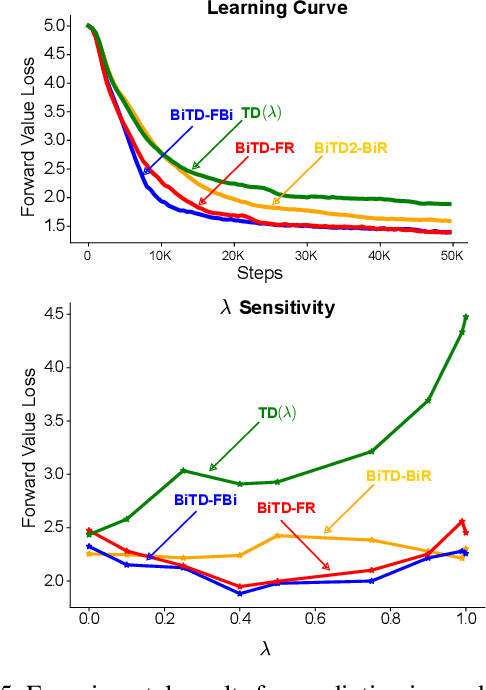From Past to Future: Rethinking Eligibility Traces
Paper and Code
Dec 20, 2023



In this paper, we introduce a fresh perspective on the challenges of credit assignment and policy evaluation. First, we delve into the nuances of eligibility traces and explore instances where their updates may result in unexpected credit assignment to preceding states. From this investigation emerges the concept of a novel value function, which we refer to as the \emph{bidirectional value function}. Unlike traditional state value functions, bidirectional value functions account for both future expected returns (rewards anticipated from the current state onward) and past expected returns (cumulative rewards from the episode's start to the present). We derive principled update equations to learn this value function and, through experimentation, demonstrate its efficacy in enhancing the process of policy evaluation. In particular, our results indicate that the proposed learning approach can, in certain challenging contexts, perform policy evaluation more rapidly than TD($\lambda$) -- a method that learns forward value functions, $v^\pi$, \emph{directly}. Overall, our findings present a new perspective on eligibility traces and potential advantages associated with the novel value function it inspires, especially for policy evaluation.
 Add to Chrome
Add to Chrome Add to Firefox
Add to Firefox Add to Edge
Add to Edge